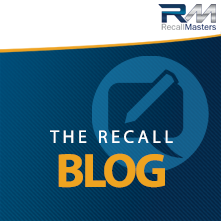Use Modern Media Channels to Help with Recalls
Imagine you have an urgent recall and need to get in touch with owners quickly. How do you do it? While phone calls, emails and letters are all still staples of the recall process, dealers can and should take advantage of new options to cover the widest range of customers they can.
One of the most important things to do during a recall is assure your customers that you’re trying your hardest to help them. Embracing mobile apps and other online media may send that message and also get important data to them faster.
General Motors is setting the standard with an updated version of its app for truck owners. According to a new piece from PickupTrucks.com, the myGMC and myChevrolet apps are set to help users better track vehicle information and stay on top of recalls just by consulting their phones. These apps will be compatible with iPhones and Androids alike, and are part of a plan for the manufacturer to gradually phase out its existing app.
This comes at a time when ensuring recall completion is a serious order for all manufacturers. Major efforts like the Takata air bag recalls and the VW diesel emissions effort can confuse owners who aren’t sure if their vehicle falls with a certain range of recalls or not.
To come up with the best solution, dealers can start with the requirements listed in the National Highway Traffic Safety Administration’s Safety Recall Compendium. Under this record, manufacturers must maintain a list of registered owners as well as the vehicle identification numbers of units affected during a recall, among other things. Dealers can also be responsible for responding to official surveys as investigators determine the status of recall.
This shows how important the dealer’s role is in guaranteeing recall quality. As manufacturers try to pursue better ways of connecting with owners, dealers need to update their recall communications strategy to stay on the same page. Here are a few ways to stay aligned with company and government expectations.
- Coordinated strategies: The key to successful recalls is planning ahead. Which users are at the most risk, and how long will it take to contact them? Even though new channels are important, they should work with the older methods, not instead of them. Digital forensics tools also allow dealers to collate data from several different sources, making each recall more specific.
- Real-time lookup: Verifying vehicle information will make it easier to track individual units as an action proceeds. Keeping this data accessible is crucial, too, since it helps staff more easily focus on long-running recalls, like the Takata inflator case. Services that use JavaScript Object Notation provide an easy way to keep up with details. That way, dealers can take a big step to improve their performance without overburdening themselves.
- Specified focus: Without clear definitions, a recall marketing program risks casting the net too wide. Manufacturers can provide so much data that the dealer can easily feel overwhelmed looking through it all, so the dealers need to concentrate solely on the most relevant pieces. For example, information on recalls can include actions that have already expired, making it necessary to weed these entries out. Smartly designed databases will make it easy to find exactly the points you need.
- Tracking metrics: If something’s not working with a current recall, you can’t afford to wait too long to change it. Superior reporting techniques help dealers take a good, hard look at the way they’ve addressed recalls so far and decide what they need to change. This can include call journals that log individual interactions.
Owners and manufacturers alike are only going to expect more tech-driven solutions as recalls evolve. Smart recall communications measures are a key part of that process.

